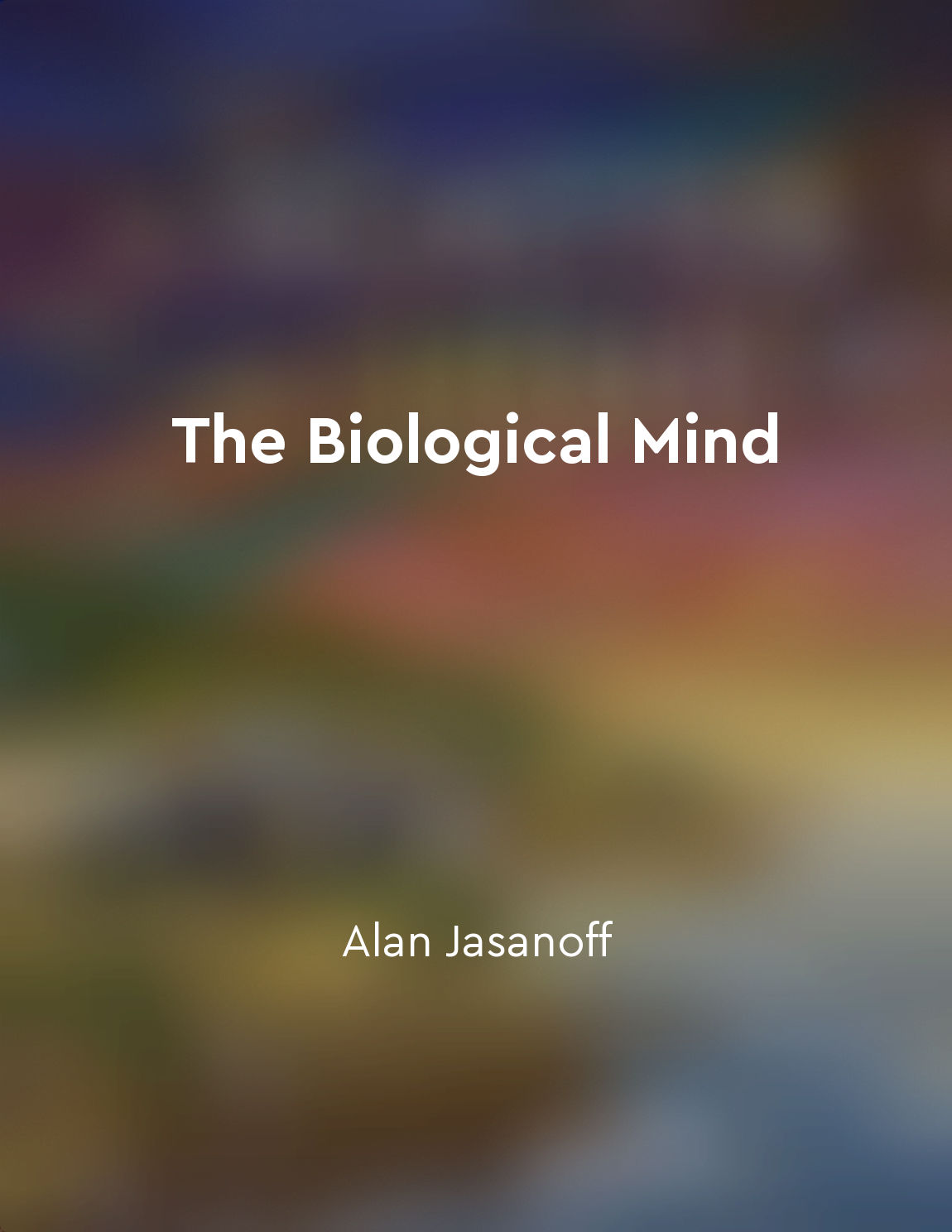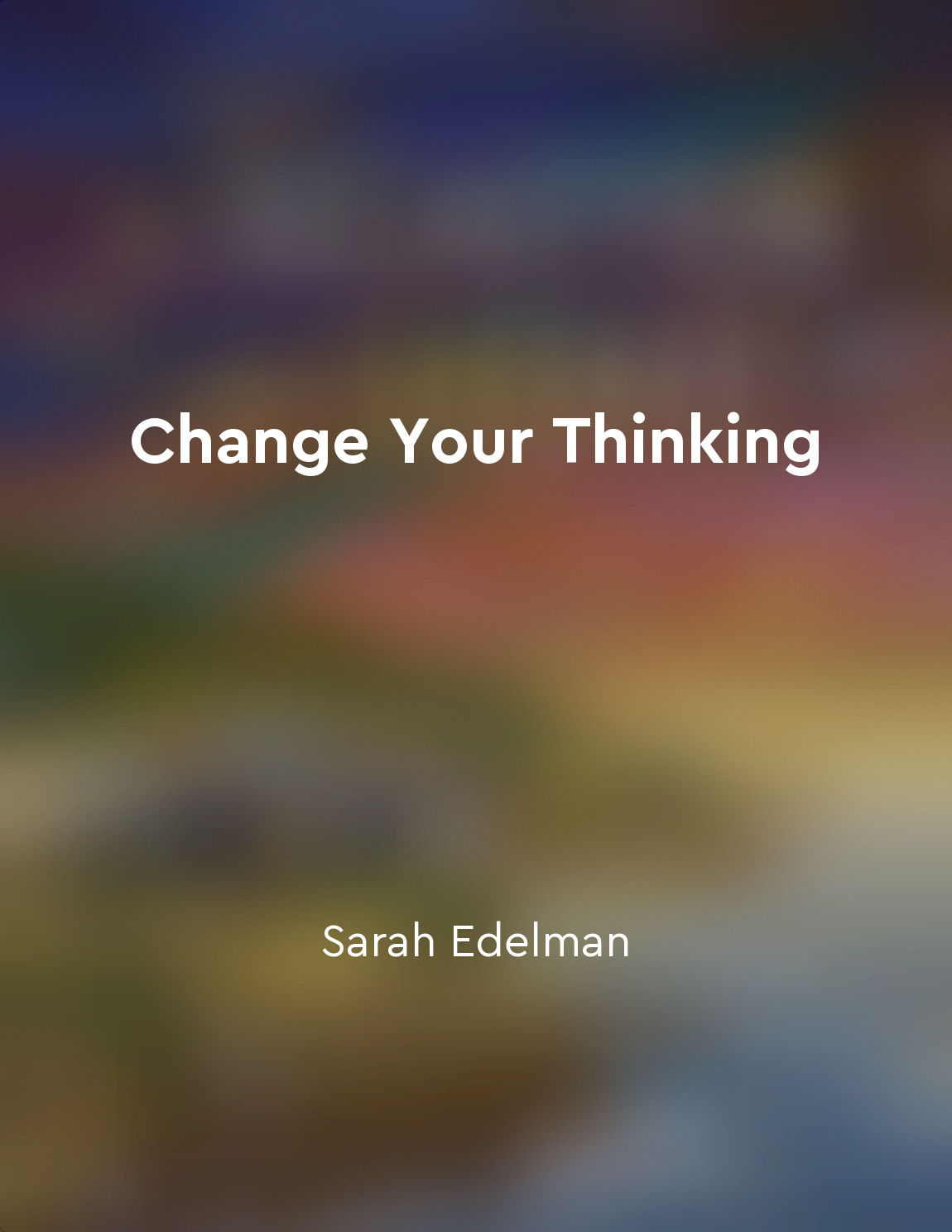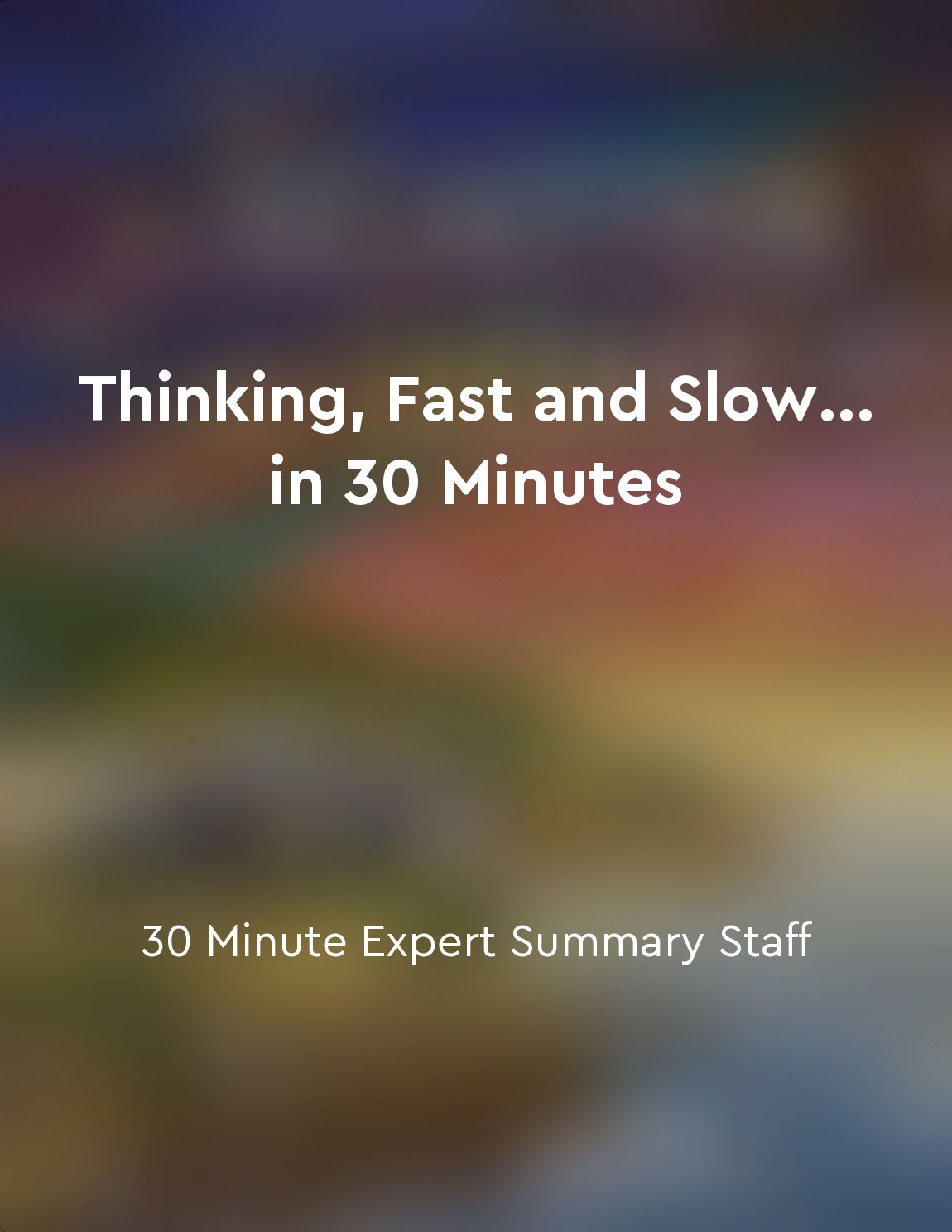System two is deliberate and slow from "summary" of Thinking, Fast and Slow... in 30 Minutes by 30 Minute Expert Summary Staff
System two is deliberate and slow, meaning that it requires effort and concentration to engage. This system is activated when we need to solve complex problems, make difficult decisions, or focus our attention on a particular task. Unlike system one, which operates automatically and effortlessly, system two involves conscious thought and mental effort. When we use system two, we are able to think more critically and analytically compared to when we rely on system one. This deliberate mode of thinking allows us to consider different perspectives, weigh evidence, and make rational judgments. However, because system two is slow, it can be taxing on our cognitive resources and may lead to mental fatigue if overused. One key characteristic of system two is that it is prone to errors and biases, despite its slow and deliberate nature. This is because our cognitive processes can be influenced by various factors, such as emotions, biases, and heuristics. As a result, even when we are consciously trying to make a thoughtful decision, we may still be swayed by unconscious biases and cognitive shortcuts. Another important aspect of system two is its role in self-regulation and impulse control. When we engage system two, we are better able to resist temptations, delay gratification, and make long-term decisions that align with our goals and values. This ability to override our impulses and think strategically is essential for achieving success and maintaining self-discipline.- System two plays a crucial role in our cognitive functioning by enabling us to think critically, make deliberate choices, and regulate our behavior. Despite its slow and effortful nature, this system is essential for making informed decisions, solving complex problems, and achieving our long-term goals. By understanding the characteristics and limitations of system two, we can harness its power and optimize our cognitive processes for more effective thinking and decision-making.
Similar Posts

The biological mind is a product of evolution
The idea that the biological mind is a product of evolution is fundamental to understanding how our brains work. Evolution has ...

Brain biases influence decisions
Our brains have a remarkable ability to process a vast amount of information and make quick decisions. However, this rapid proc...
Mental shortcuts: simplify decisionmaking
One of the most powerful tools our brain uses to make decisions is the concept of mental shortcuts. These shortcuts allow us to...
Habits are the compound interest of selfimprovement
Think of habits as small actions you take every day that compound over time. Just like compound interest in the financial world...
Embrace simplicity and declutter your surroundings
Simplicity and decluttering your surroundings are key principles in resetting your brain for optimal wellness. By simplifying y...

Building selfconfidence through self-care practices
Self-confidence is a quality that can greatly impact our overall well-being and success in life. When we feel good about oursel...
Conditioning the mind for health can lead to physical healing
Dr. Joe Dispenza presents a fascinating concept in his book 'You Are the Placebo' that suggests our thoughts and beliefs have a...
Lack of sleep affects willpower
When you're tired, it's no secret that you're more likely to give in to temptation. But why does this happen? Lack of sleep aff...
People tend to stick to their initial judgments
When faced with making a decision, individuals often rely on their initial judgments as a guiding force. This tendency to stick...

Selfjustification can lead to irrational actions
Imagine you find yourself in a situation where you have made a decision that turned out to be a mistake. Your brain will likely...


